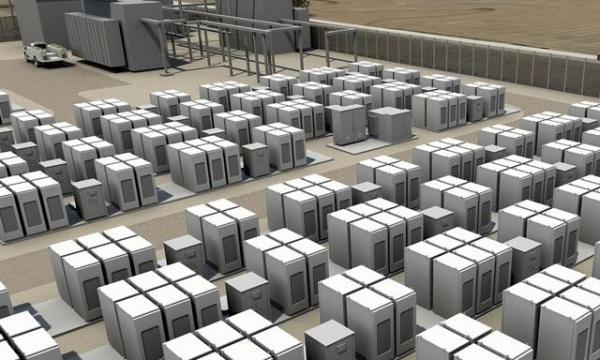The clamour for lithium-ion was loud this week, with several companies switching chemistries and announcing new projects.
General Electric announced it had signed its largest lithium battery energy storage deal in the history of the company, partnering Coachella Energy Storage Partners to manufacture 30 MW battery energy sources for CESP’s contract with the Imperial Irrigation District in California.
“The facility will aid grid flexibility and increase reliability on the IID network by providing solar ramping, frequency regulation, power balancing and black start capability for an adjacent gas turbine,” said GE in a statement.
The deal, which marks GE’s third ion battery-based energy storage project since it entered the market just two months ago, will use mostly GE-patented inverters and transformers as well as GE’s lithium-ion batteries.
Semiconductor firm Freescale then announced it had developed a lithium-ion cell controller with features optimised for 14V car batteries that were intended to replace traditional lead-acid automotive batteries.
The chip, called an MC33772, helps protect automotive batteries against critical fault conditions.
“To maintain safe operating conditions and ensure system-wide control of the battery, battery cell controllers must provide accurate, reliable battery diagnostics and high speed communication of status,” said Freescale.
The chip, called MC33772, includes functional verification supporting ISO 26262 ASIL-C requirements, which help protect automotive batteries against critical fault conditions. ASIL-D (higher level) system implementations are realised using multiple Freescale battery cell controllers for redundancy.
It supports 2Mbit/s battery health and conditions communication for centralised, distributed CAN and distributed daisy chain battery management system topologies.
And in a Las Vegas backstreet, a staff of just ten have quietly kicked off a lithium battery business with predicted sales of US$1 million this year, to increase by 100% next year.
Fronted by Chinese national Ping Gao, who also chairs the Lithium Battery Association of China, Rechargeable Power Energy (RPE) supplies construction crews with power support for light tower systems and has now launched a ‘Ripple Bicycle’ ebike using new lithium battery packs that are assembled, tested and developed at the company’s 10,000 square foot space.












